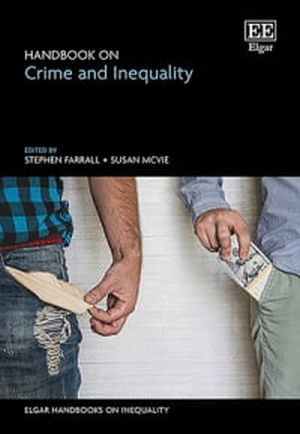
In this Handbook, Stephen Farrall and Susan McVie bring together a diverse array of leading experts to examine the relationship between different aspects of crime and inequality. They employ a variety of geographical and individual lenses and use case studies from the Global North and South.
Expanding upon current knowledge and introducing new research, the chapters provide dynamic and multidimensional perspectives. They focus on a range of criminological topics, including victimization, offending, attitudes towards punishment, policing processes and the fear of crime. They also interrogate various competing and overlapping measures of inequality. Contributing authors illustrate the conceptual, theoretical and methodological challenges of studying crime and inequality, and underscore the need for engagement by criminologists in this under-researched field.
The Handbook on Crime and Inequality is a vital resource for students and scholars of criminology, inequalities, welfare states, urban sociology and social policy. Policymakers and legal practitioners will also find its insights beneficial for understanding communities and informing governance.